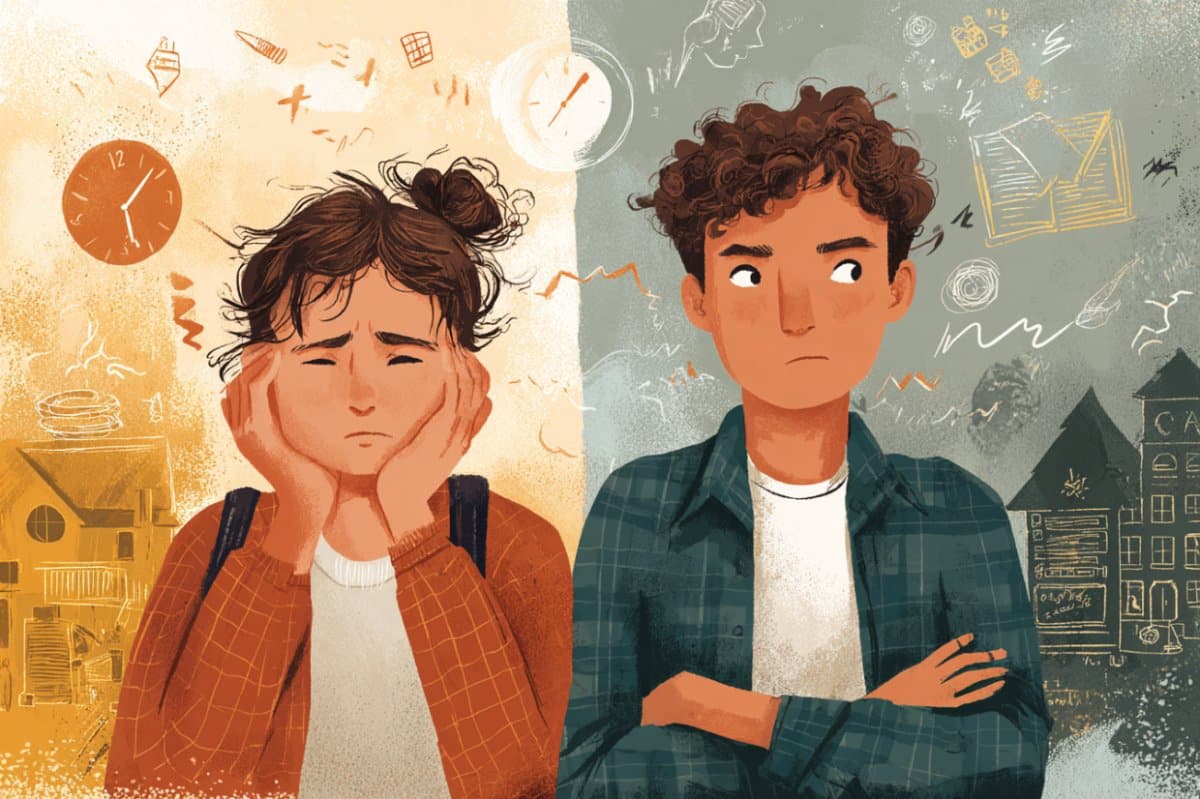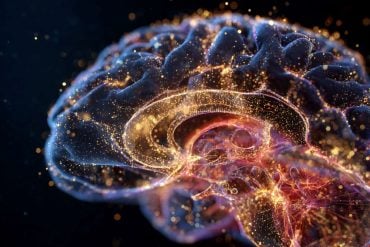Summary: Children who have trouble managing their emotions at age seven are more likely to experience anxiety and depression during their teenage years, a new study finds. Researchers analyzed data from the UK Millennium Cohort Study, tracking emotional development and mental health from childhood to age 17.
They found that early signs like mood swings, frustration, and overexcitability strongly predicted internalizing problems later in adolescence. The results underscore the importance of teaching emotion regulation skills early to support long-term mental health.
Key Facts:
- Early Emotion Regulation: Difficulty managing emotions at age 7 predicted symptoms of anxiety and depression in adolescence.
- Persistent Impact: The link remained significant up to age 17, even after accounting for earlier mental health issues.
- Preventive Potential: Early emotional support may reduce long-term mental health risks in youth.
Source: University of Edinburgh
Young children who struggle to control their emotions and behaviour have more symptoms of anxiety and depression as teenagers, a study says.
Children who had difficulty managing intense emotions at age seven were more likely to show signs of mental health issues such as despair, sadness and worries at age 11, 14 and 17, research found.

The University of Edinburgh study, funded by the Medical Research Foundation, is among the first to examine the links between early patterns of emotion regulation and teenage mental health.
The findings suggest that helping children to develop emotion regulation skills when they are young could help reduce mental health issues in adolescence, researchers say.
Experts analysed a large dataset to test whether children who have a problem with regulating their emotions at age seven are more likely to show internalising behaviours – such as sadness, worry and fear – as teenagers.
Adolescence is a critical period for the onset of internalising problems. A third of adolescents experience depression and around a fifth are affected by an anxiety disorder, researchers say.
The team examined data from the UK Millennium Cohort Study which follows the lives of around 19,000 young people born in 2000-02.
The researchers analysed questionnaires and interviews which surveyed parents and teachers on young people’s emotional problems at ages 11,14 and 17.
They used statistical techniques to compare children with different levels of emotional regulation skills at age seven on their mental health in adolescence, taking into account factors like their earlier mental health and behaviour.
Findings showed that a tendency to show signs of emotion regulation difficulties like mood swings, often getting over-excited and being easily frustrated at age seven were significantly associated with internalising behaviours such as anxiety and depression symptoms in the teenage years.
This was the case even when other factors such as pre-existing mental health issues were taken into account.
The link was present until age 17, suggesting a sustained effect of intense emotions in the early years, the researchers say.
Dr Aja Murray, of the University of Edinburgh’s School of Philosophy, Psychology and Language Sciences, who led the study, said: “Our findings suggest that early emotion regulation issues are a precursor to later mental health challenges in adolescence. They suggest that supporting children to learn emotion regulation skills early could help reduce these later issues.”
Dr Angela Hind, CEO of the Medical Research Foundation, said: “Many mental health conditions first emerge in adolescence, and today up to one in five young people in the UK are living with mental health problems. This is a terrible burden on both young people and society.
“By identifying factors in young children that may increase vulnerability to mental health problems in their teenage years, this research brings us closer to shifting from treatment to prevention – enabling early, targeted interventions in childhood that have the power to change the course of young lives.”
About this neurodevelopment and mental health research news
Author: Joanne Morrison
Source: University of Edinburgh
Contact: Joanne Morrison – University of Edinburgh
Image: The image is credited to Neuroscience News
Original Research: Open access.
“Is emotion dysregulation in childhood a precursor to internalising problems in adolescence?” by Aja Murray et al. Journal of Affective Disorders
Abstract
Is emotion dysregulation in childhood a precursor to internalising problems in adolescence?
Internalising problems such as anxiety and depression affect a sizeable proportion of adolescents and show a peak age of onset around the transition to adolescence.
Emotion regulation issues have been associated with internalising problems; however, it is less clear whether emotion regulation issues in childhood are a causal precursor to internalising problems in adolescence.
The present study uses a counterfactual analysis approach in a large-scale UK representative study to assess whether emotion regulation issues at age 7 appear to have a causal impact on internalising problems at age 11,14, and 17, when accounting for confounding factors, including pre-existing internalising problems.
Results suggested a modest but significant effect of emotion dysregulation in childhood on adolescent mental health.
These results suggest that childhood emotion regulation problems impact mental health later in development and potentially point to childhood emotion dysregulation as a promising intervention target for reducing adolescent mental health issues.






